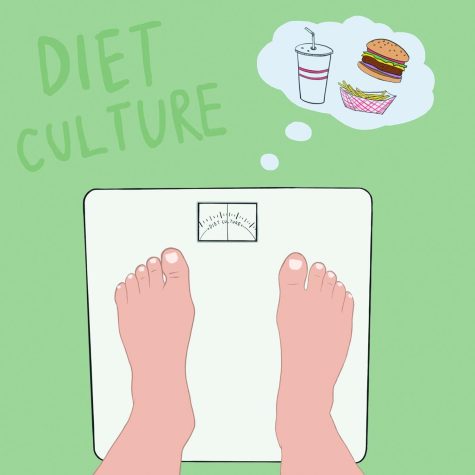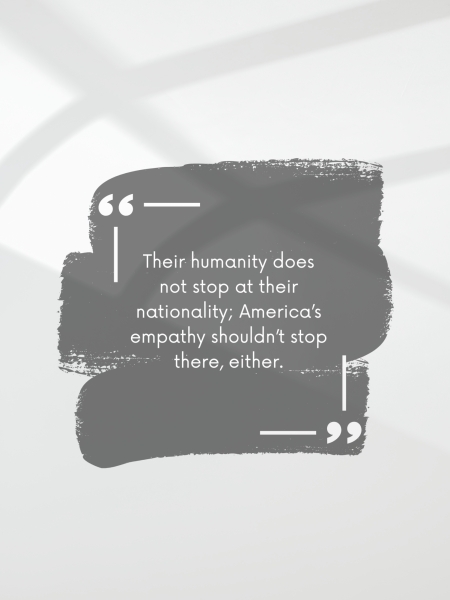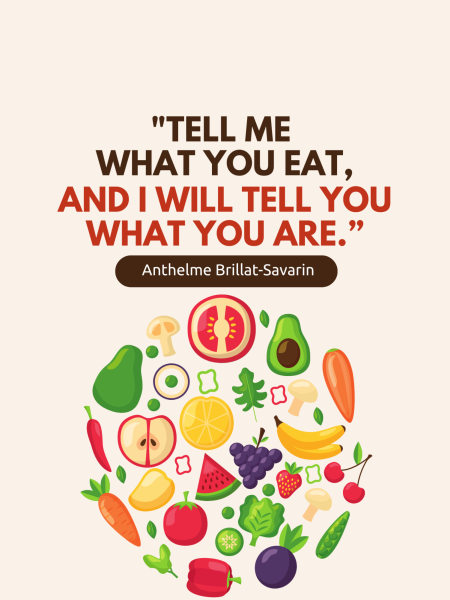America imposes unrealistic ideas of weight loss
Diet culture has permeated the eating patterns and value systems of many Americans. It is defined as the belief that weight and body shape are more important than general health and well-being. Diet culture manifests itself in glorifying weight loss, giving foods moral labelings or even cutting out food groups altogether. This belief system is harmful and creates more problems than it ultimately solves.
Whether it’s on social media or television, new diets claim the viewer will “lose 20 pounds in a week” or “have a slimmer belly” if they adhere to their regimen. In reality, these “diets” are quick fixes where lost weight is challenging to keep off. For example, the ketogenic or “keto” diet. It is primarily used to manage epileptic seizures in children but has been adopted by many worldwide as a weight loss plan.. It promotes a high-fat, low-carb diet, fat supplying up to 90% of the daily calories. The idea behind the diet is that it provides the body with a different fuel. Rather than burning glucose (sugar) from carbohydrates like legumes, grains, vegetables, and fruits, the body will start relying on ketone bodies that the liver produces from stored fat, according to Harvard medical school’s health department.
“The high-fat content — and especially the high level of unhealthy saturated fat — combined with limits on nutrient-rich foods is a concern for long-term heart health.” according to mayoclinic.org.
Though ketogenic is only one example of a strict diet, many others are circulating and gaining popularity. Despite these messages and regimens, it’s important to note that thinness is not synonymous with wellness, and fatness does not equate to being unhealthy. The primary source that construes the truth of the above statement is the BMI.
Lambert Adolphe Jacques Quetelet, a 19th-century mathematician, created the Body Mass Index still used by physicians today. It divides a person’s weight by their squared height to measure their level of obesity. This measurement is not physiologically correct, as it does not take bone or muscle mass into account. For example, Lebron James, LA Lakers shooting guard and NBA all-star, is 250 lbs and 6’9”, classifying him as overweight with a 26.8 BMI.
When doctors inform their patients they have a high BMI and should consider losing weight, it can cause feelings of self-disgust or shame within themselves, and most of the time, the advice is unnecessary. The same could be said of the psychological effects of diet culture.
How does diet culture manifest itself in everyday life? It could pop up in several blatant or subliminal ways. It could be receiving negative comments about your body, criticism about what’s on your plate, or marketing schemes meant to get you to buy the company’s bogus products. It can also be rebranded with “clean eating” or focus on health and fitness.
Obviously, eating nutritious food is essential for health and wellness. Fruits, vegetables, whole grains, and lean proteins should be at the forefront of everyone’s eating patterns. Alternatively, having an obsessive and controlling mental dialogue while eating or thinking about it should not be normalized. These thoughts can turn into harmful habits of restricting caloric intake, feeling fearful or depressed during meal-time, or modifying foods to be “better for you” (such as sugar-free cookies or substituting bread with bell peppers.) That’s great if healthier alternatives are genuinely enjoyed, but if it is forced or the alterations come from a place of shame or fear, then it’s psychologically unhealthy. If “clean-eating” is taken far enough, it can develop into orthorexia.
Orthorexia Nervosa defines “(individuals) becoming so fixated on so-called ‘healthy eating’ that they actually damage their own well-being.” according to nationaleatingdisorders.org.
“You may avoid certain celebrations because you need to eat clean. Or, like me, have a meltdown at a grocery store or restaurant when the item I had planned all week to get is out of stock. Yes, I’ve had panic attacks and even cried over raw vegetables and organic produce.” said Jason Wood, a recovered orthorexic who told his story on thisismybrave.org.
Diet culture enhances the probability of developing an eating disorder and having a poor body image and low self-esteem. It’s essential to detect it and have the ability to fight it.
A great way to combat diet culture is eating intuitively. At times, it’s easier said than done as it is eating when you’re hungry, eating what sounds good, and stopping when you’re full or satisfied. This tactic has been shown to mend unhealthy relationships with food.
Another way is to incorporate movement naturally and healthily. Many that adhere to diet culture’s standards find themselves in the gym for insane amounts of time without nearly enough fuel. Low-impact exercise or moving in enjoyable ways can help with consistency and boost mood.
Social media is a medium that diet culture followers use to spread gimmicks and harmful information, and so it’s also important to block or restrict accounts that perpetuate these ideas. Finding support from people in-person who idealize the same beliefs will also aid in kicking diet culture to the curb in personal lives.






